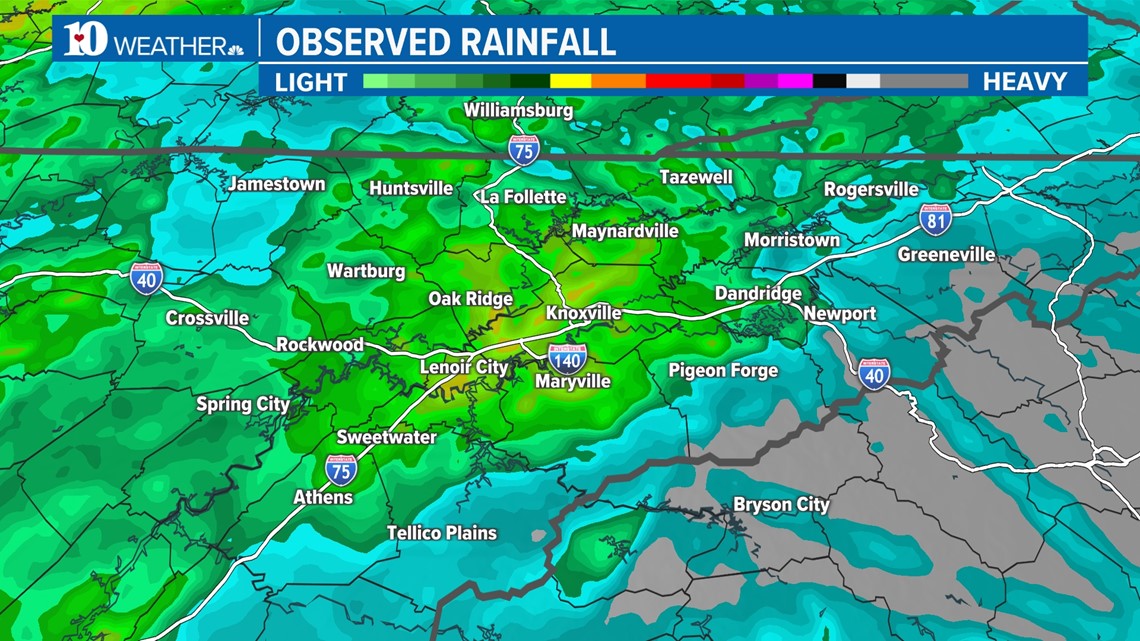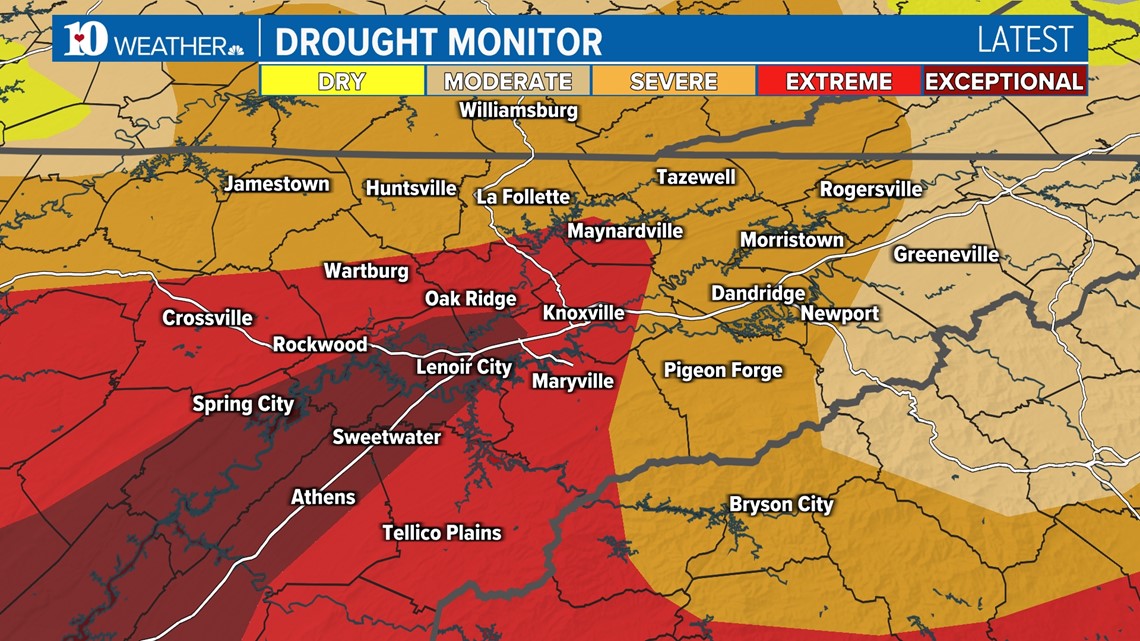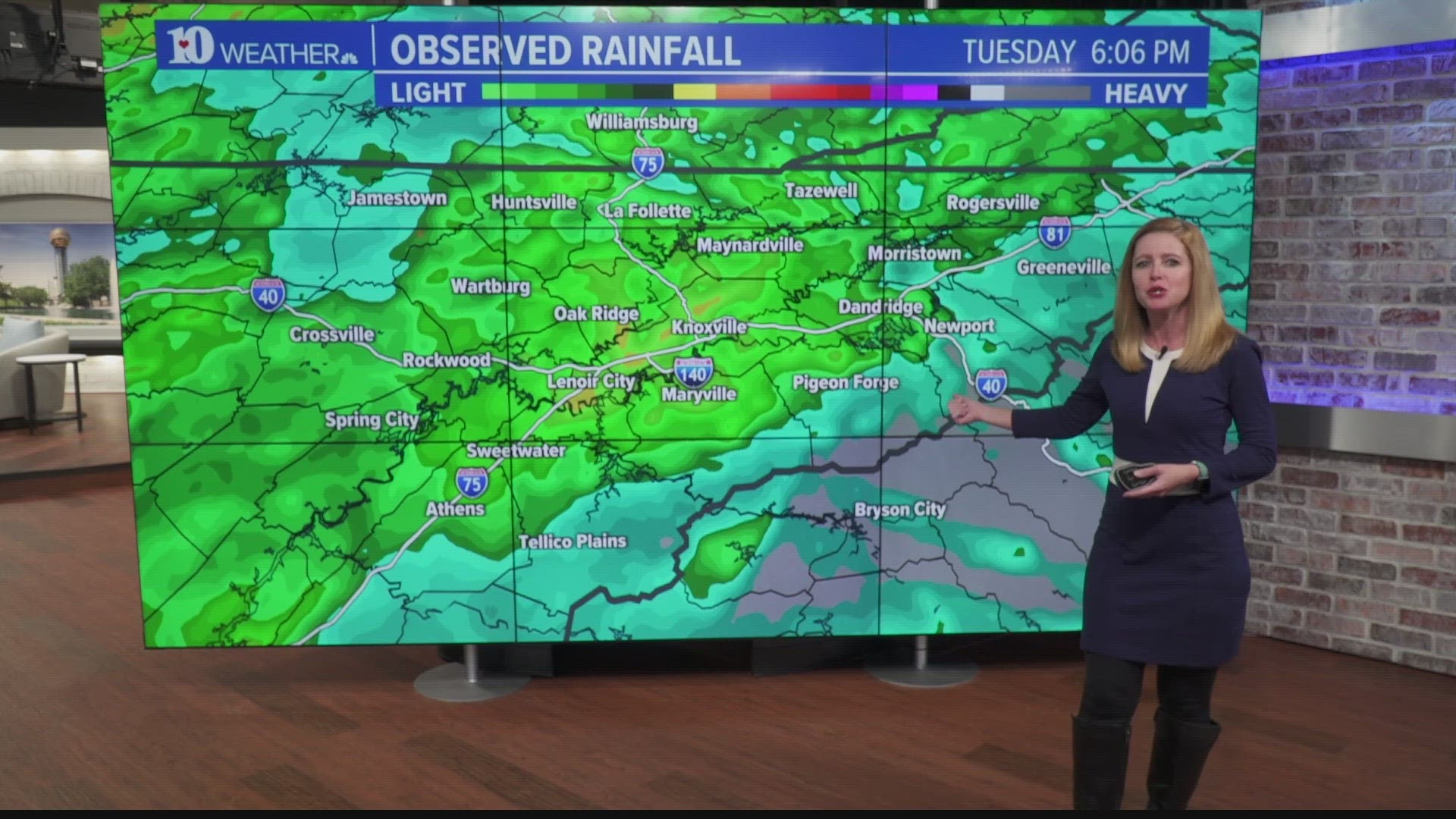KNOXVILLE, Tenn. — The best news we've had in a while... it rained in East Tennessee!
A strong low-pressure system was able to pull moisture northward from the Gulf of Mexico and most of our viewing area received some very beneficial rainfall through the day Tuesday.
Parts of the Plateau and Valley saw 1" to 2" of rain but totals were much lower in our far eastern counties. Down-sloping winds prevented the rain from reaching the ground until later in the day in the Foothills and Mountains, leading to totals of 1/4" or less for parts of Monroe, Blount, Sevier, Cocke and Greene counties.


Will this rain be enough to put out the wildfires or end the fire danger?
No, it won't be enough to put out the larger wildfires burning in the area but it will help to reduce fire behavior and help firefighters gain control of the fire lines.
RELATED: Voluntary evacuation notices issued after 6-acre Rich Mountain fire jumps containment near Townsend
The moist air, cooler temperatures and rain soaking into the ground will certainly lower the fire danger for a few days but with drier conditions expected to return later this week, fuels will quickly dry out and the fire danger will increase again.
Sadly, long-range models don't show much (if any) rain through this weekend or in the 6 to 10-day outlook.


Will this rain make a dent in the current drought?
It took two and a half months for this drought to develop so it's going to take a while for conditions to improve but yes, this rain was certainly helpful.
The latest drought monitor shows "exceptional" drought conditions in the Valley and "extreme" drought on the Plateau and in the Mountains.


Just since September 1st, we have been missing 6" to 8" of rain, giving us the driest start to fall on record... so at this point, anything helps!
It would be good if we had more rain in the forecast but as mentioned above, it looks like things will dry out again by the end of the month.
Hopefully, this pattern will change once we move into December and we can start chipping away at this drought through the winter months.

